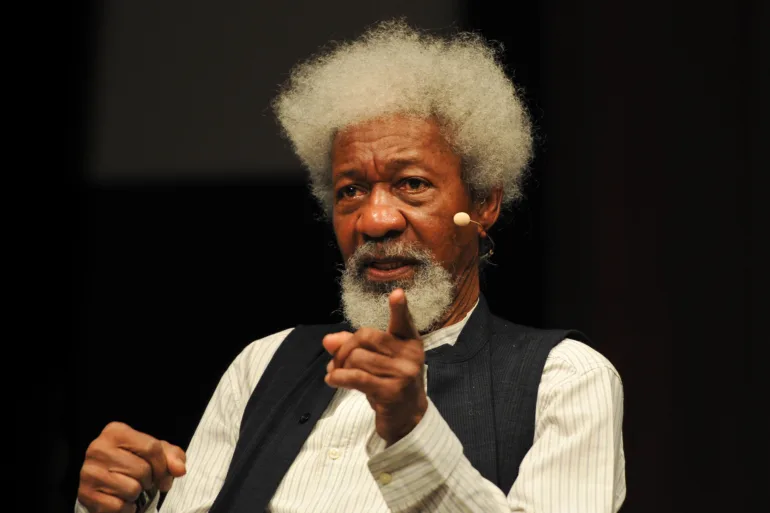Nobel Laureate, Professor Wole Soyinka, has condemned the recent ban on a song by Nigerian musician Eedris Abdulkareem, calling it a dangerous regression into censorship and a threat to free expression.
In a statement released from New York University, Abu Dhabi, on Sunday, Soyinka decried the move and its wider implications, likening it to past efforts to silence artistic and socio-political voices in Nigeria.
“Courtesy of an artist working in another genre – the cartoon – who sent me his recent graphic comment on the event, I learned of a return to censorship with the banning of a music artist’s work,” Soyinka said in a piece posted by PM News.
With biting irony, Soyinka remarked, “It is not only the allegedly offensive record that should be banned – the musician himself should be proscribed. Next, PMAN, or whatever musical association Abdulkareem belongs to, should also go under the hammer.”
Though he admitted he had not listened to the song, Soyinka stressed that the core issue was not the song’s content but the principle of freedom of expression.
“That principle is non-negotiable. It cannot be flouted. This is why I recommend the Aleshinloye cartoon—and others like it—as digestible wisdom on the futility of stifling unpalatable artistic or political commentary,” he said.
He also pointed out the irony of censorship often working in favor of the targeted artist. “The ban is a boost to the artist’s nest egg, thanks to free governmental promotion. Mr. Abdulkareem must be merrily warbling his way to the bank. I envy him,” Soyinka quipped.
Warning against the broader consequences of censorship, Soyinka said such actions were not only counterproductive but also deeply harmful to democratic growth.
“We’ve seen this play out repeatedly. It’s tiresome, diversionary, and ultimately subversive of fundamental freedoms,” he said, adding that it creates a “permissive atmosphere of trickle-down power” where state authorities feel entitled to suppress dissent.
Soyinka also linked the issue to a wider culture of impunity and violence in the country, lamenting the recent lynching of 19 youths in Edo State.
“My heart goes out to the friends, colleagues, and families of the victims, as well as the survivors of this senseless slaughter. Our thirst for justice must remain unquenchable,” he said.
Recalling the 2022 murder of Deborah Samuel in Sokoto, he criticized the failure to hold the perpetrators accountable. “Identified killers were set free to gloat and even flaunt their images on social media—in broad daylight, under the gaze of both civilians and security forces.”
He warned that as long as impunity is tolerated or legitimized in any form, “such gruesome assaults on our shared humanity will persist.”
Soyinka concluded by urging the regulatory authorities to reverse what he called a “petulant irrationality,” cautioning that any government that only tolerates praise-singers “has already begun its descent into the abyss.”


